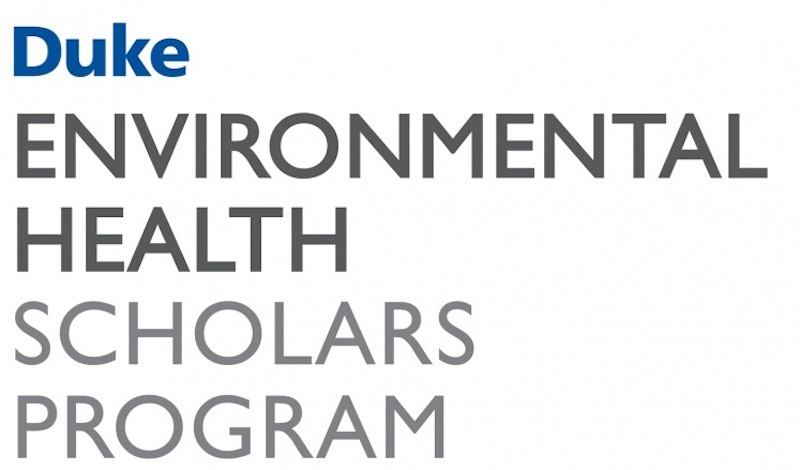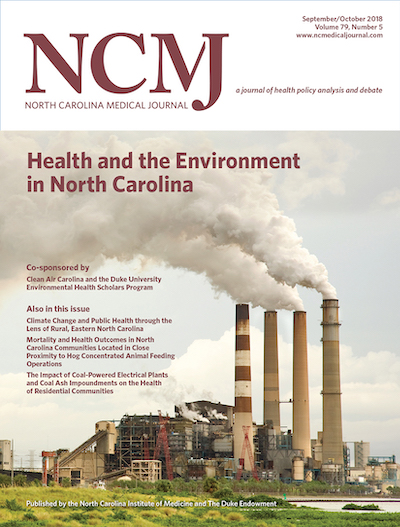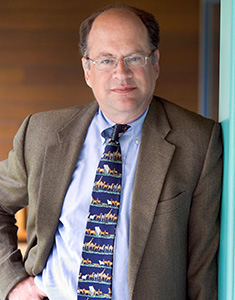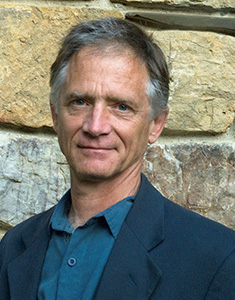Overview


Home to multiple high-power universities, agencies, corporations, and non-profit organizations, the Triangle Area presents an ideal environment for stimulating productive, synergistic, activity exploring environmental aspects of health. Members of the Duke School of Medicine (DSOM) together with investigators at the Duke Nicholas School of the Environment (NSOE), the Duke Law of School, the Duke Margolis Center for Health Policy, and other Duke institutes and centers have a history of involvement in both basic and population research arenas.
Environmental health research explores the impacts of our natural and man-made environment on human health. Yet, the environment is not limited to our air, water, soil and food. It also encompasses our sociocultural environment, economic environment, work environment and family environment. The phrase “applied environmental health” means translating the results of environmental health research into positive actions and public health interventions that are appropriate in the context of our total sociocultural and economic environment at local, national, and global levels.
Dr. H. Kim Lyerly, Director of the Duke Center for Applied Therapeutics, Chief of the Section of Applied Therapeutics, Department of Surgery, has therefore established an Environmental Health Scholars program to maintain the momentum created by their work in applied environmental health, and to support new investigators focused on these activities.
Research, Bioinformatics, and Population-Based Studies That Can Influence Policy
New research in applied environmental health will be greatly facilitated by the coordination of diverse databases and registries, including clinical, behavioral, environmental, geospatial, and biomarker datasets. The advent of data interoperability opens up new possibilities for research into as yet poorly understood associations between environmental factors and disease risk. An example initiative exploiting coordinated data repositories at Duke is the use of geospatial information system (GIS) applications, in combination with advanced spatial statistical approaches, to investigate clinical and environmental factors associated with the physical location of patients.
Core objectives of dataset coordination include the following:
- Identification of temporal and spatial clusters of diseases, overall and by tissue classification
- Description of longitudinal temporal and spatial patterns of disease occurrence and progression
- Determination of the relationship between diseases and possible environmental threats, analyzed by patients’ socioeconomic status, racial/ethnic status, disease characteristics, and access to care
The approach of leveraging coordinated datasets to better understand patterns of disease impact creates a research infrastructure that can powerfully support analyses of associations between environmental exposures and disease incidence.
There is a growing recognition that, in order to ensure the affordability of the healthcare system, healthcare policy must prioritize prevention. Critical information that can help to shape health policy focused on disease prevention will pertain to associations between environmental factors and health risk. To generate this information and to provide it to operative individuals in federal and state government, we have begun an active agenda of communication, education, and collaboration.
Since January 2010, Duke has engaged William G. Ross, Jr., former Secretary of the North Carolina Department of Environment and Natural Resources – to lead the policy-oriented efforts of the research. He has begun to forge dynamic connections between multi-disciplinary Duke investigators involved in environmental research and policy-makers.
Activity was launched with a presentation made on April 6, 2010 by Ken Cook, founder and president of the Environmental Working Group (EWG), a nonprofit organization headquartered in Washington, DC; the EWG focuses on the areas of toxic chemicals, agricultural subsidies, public lands, and corporate accountability. Mr. Cook’s talk, attended by approximately 200 people, was followed by numerous events designed to initiate ongoing discussion and working relationships between the EWG, state policy-makers, and Duke investigators studying health/environment associations. Example outcomes of the event were (1) networking between the EWG policy director and state legislators interested in issues related to toxic chemicals, and (2) the inclusion of epigenetics (a topic raised by Dr. H. Kim Lyerly, in conversations preceding Mr. Cook’s presentation) in recently introduced legislation to reform the Toxic Substances Control Act of 1976.
Program Highlights
By investing in investigators whose major goal is to study the effects of the environment on health and disease risk, society will accrue enormous benefits. By fostering collaboration, it would allow investigators to do better research and make more rapid progress than they could working on their own. An illustrative example of the dynamic and collaborative activities of the Environmental Health Scholars is illustrated by recent work in respiratory health and air quality.
The Research Triangle Environmental Health Collaborative, a coalition of university programs and agencies, holds summits on issues related to the environment and health including a 2010 summit titled “America’s healthcare policy through the lens of environmental health.” A white paper report of this summit was published as an academic report "Bridging the information gap between health and the environment in North Carolina" by Kearney GD, Shehee M, Lyerly HK, in the Journal of Public Health Management Practice in 2013. A major conclusion of this paper was to bridge knowledge gaps between environmental and health data to draw attention to the environmental effects of health.
Based on that recommendation, Dr. Lyerly and his group published an academic report “Long-term dynamics of death rates of emphysema, asthma, and pneumonia and improving air quality” by Julia Krauchanka, Igor Akusheveich, Amy P. Abernethy, Sheila Holman, William G. Ross Jr., and H. Kim Lyerly, in the International Journal of Chronic Obstructive Pulmonary Disease in 2014. Using mortality trends from state public health data, along with monthly measurements from air-monitoring stations across North Carolina from 1993-2010, they were able to draw a close association between improved air quality and declining death rates from respiratory illnesses. They concluded that national and state air pollution controls that went into effect in the early 1990s coincide with decreasing death rates from emphysema, asthma and pneumonia among people in North Carolina. This study was specifically cited by editorials regarding the US Supreme Court’s decision in June 2014 to keep intact the Environmental Protection Agency’s power to regulate carbon emissions.
Key opportunities include a new understanding of the role of environmental signals that trigger cell behavior along disease pathways. This knowledge can results in:
- Informing environmental scientist and policy makers about the potential risk of environmental pollutants, better inform studies designed to document these risks
- Creating opportunities to intervene and develop treatment or prophylaxis to these environmental exposure
- Knowledge gained by the process will lead to opportunities to develop key information about molecules that have therapeutic effects on pre-disease conditions
Most importantly, this effort would ensure progress on the path toward both saving lives and our environment that are now being lost or destroyed by diseases and environmental exposures.
Selected Achievements
- NC Medical Journal: Health and the Environment in NC
- Exploring NC with Tom Earnhardt: Why Clean Air Matters
**INSERT VIDEO**
Ongoing Collaborations
- Duke Nicholas School of the Environment (NSOE)
- Duke Law of School
- Duke Margolis Center for Health Policy
- Clean Air Carolina
Advanced Education and Training
- Annual Fall Forum on Health and the Environment in NC
- The Environmental Health Scholars Award
Collaborate with Us
Please contact H. Kim Lyerly at kim.lyerly@duke.edu.
Members
Scientific Advisory Board
William Schlesinger

William H. Schlesinger was named President of the Cary Institute of Ecosystem Studies, a private ecological research institute on the grounds of the Cary Arboretum in Millbrook, NY in 2007 after 27 years on the faculty of Duke University. Completing his A.B. at Dartmouth (1972), and Ph.D. at Cornell (1976), he moved to Duke in 1980, where he retired in spring 2007 as Dean of the Nicholas School of the Environment and Earth Sciences and as James B. Duke Professor of Biogeochemistry.
He is the author or coauthor of over 200 scientific papers on subjects of environmental chemistry and global change and the widely-adopted textbook Biogeochemistry: An Analysis of Global Change (Academic Press, 3rd ed. 2013). He has published editorials and columns in the Charlotte Observer, Chicago Tribute, Los Angeles Times, Philadelphia Inquirer, and the Raleigh News and Observer.
Schlesinger was among the first to quantify the amount of carbon held in soil organic matter globally, providing subsequent estimates of the role of soils and human impacts on forests and soils in global climate change. He was elected a member of The National Academy of Sciences in 2003, and was President of the Ecological Society of America for 2003-2004. He is also a fellow in the American Academy of Arts and Sciences, the American Geophysical Union, and the Soil Science Society of America.
His past work has taken him to diverse habitats, ranging from Okefenokee Swamp in southern Georgia to the Mojave Desert of California, and three times as a Duke alumni tour guide to Antarctica. His research has been featured on NOVA, CNN, NPR, and on the pages of Discover, National Geographic, the New York Times, and Scientific American. Schlesinger has testified before U.S. House and Senate Committees on a variety of environmental issues, including preservation of desert habitats, global climate change and carbon sequestration.
Schlesinger currently serves on the Board of Trustees for the Doris Duke Charitable Foundation (New York), the Natural Resources Defense Council (NRDC; New York), and the Southern Environmental Law Center (Charlottesville).
He and his wife, Lisa, enjoy birdwatching, gourmet cooking, and collecting southwestern art.
Ken Cook

Ken Cook, president and co-founder of Environmental Working Group, is widely recognized as one of the environmental community’s most prominent and effective critics of U.S. farm and food policy and a leading voice on federal chemicals and pesticides law.
Cook’s early work at EWG culminated in the landmark 1996 Food Quality Protection Act that for the first time required EPA to consider the dietary risks of pesticides in food on children’s health. In 2005, at Cook’s direction, EWG researchers discovered hundreds of industrial chemicals in umbilical cord blood that changed the debate over chemical exposures in people, proving contamination began in the womb. Armed with that and other ground-breaking research, Cook developed a critically acclaimed presentation titled 10 Americans to make the case for overhauling the nation’s main chemicals management law.
Under Cook, EWG’s break-through innovation has been the creation of easy-to-use, online consumer databases to analyze toxic pollution in people, government farm subsidies, nuclear waste transportation routes to Yucca Mountain, mining claims near the Grand Canyon, tap water quality nationwide and provide consumers with cosmetics ingredient safety information for 80,000 personal care products.
Cook earned a B.A. in history, B.S. in agriculture and M.S. in soil science from the University of Missouri-Columbia. He and his wife Deb Callahan live in Marin County, California with their son, Callahan Cook.
Pete Myers

Pete Myers is founder, CEO and Chief Scientist of Environmental Health Sciences. He holds a doctorate in the biological sciences from UC Berkeley and a BA from Reed College. For a dozen years beginning in 1990, Myers served as Director of the W. Alton Jones Foundation in Charlottesville, Virginia. Along with co-authors Dr. Theo Colborn and Dianne Dumanoski, Myers wrote Our Stolen Future, a book (1996) that explores the scientific basis of concern for how contamination threatens fetal development.
Myers is now actively involved in primary research on the impacts of endocrine disruption on human health. He is the board chair of the H. John Heinz III Center for Science, Economics and the Environment and has also chaired the board of the Science Communication Network since its founding in 2003. In addition, he currently serves on the board of the Jenifer Altman Foundation. Until its merger with Pew Charitable Trusts in late 2007, he was Board Chair of the National Environmental Trust. He has also served as Board President of the Consultative Group on Biological Diversity, an association of 40+ foundations supporting work on biodiversity, climate, energy and environmental health.
When the temperature is above 50 F and it's not raining, Myers regularly publishes EnvironmentalHealthNews.org and DailyClimate.org from a platform in the woods near his house. Turkeys, foxes, turtles, deer and other creatures meander by. In spring the trees above are full of migrating warblers.
Myers twitters via account name petemyers.
Listen to an interview with Myers on YouTube. It turns out there is really good news in the flood of science that is revealing strong links between environmental exposures and human health.
Recent Publications
- The Health Impacts of Environmental Policy: The North Carolina Clean Smokestacks Act.
Kravchenko J, Lyerly HK, Ross W. N C Med J. 2018 Sep-Oct;79(5):329-333.
- The Impact of Coal-Powered Electrical Plants and Coal Ash Impoundments on the Health of Residential Communities.
Kravchenko J, Lyerly HK. N C Med J. 2018 Sep-Oct;79(5):289-300.
- Mortality and Health Outcomes in North Carolina Communities Located in Close Proximity to Hog Concentrated Animal Feeding Operations.
Kravchenko J, Rhew SH, Akushevich I, Agarwal P, Lyerly HK. N C Med J. 2018 Sep-Oct;79(5):278-288.
- Assessing the carcinogenic potential of low-dose exposures to chemical mixtures in the environment: the challenge ahead.
Goodson WH 3rd, Lowe L, Carpenter DO, Gilbertson M, Manaf Ali A, Lopez de Cerain Salsamendi A, Lasfar A, Carnero A, Azqueta A, Amedei A, Charles AK, Collins AR, Ward A, Salzberg AC, Colacci A, Olsen AK, Berg A, Barclay BJ, Zhou BP, Blanco-Aparicio C, Baglole CJ, Dong C, Mondello C, Hsu CW, Naus CC, Yedjou C, Curran CS, Laird DW, Koch DC, Carlin DJ, Felsher DW, Roy D, Brown DG, Ratovitski E, Ryan EP, Corsini E, Rojas E, Moon EY, Laconi E, Marongiu F, Al-Mulla F, Chiaradonna F, Darroudi F, Martin FL, Van Schooten FJ, Goldberg GS, Wagemaker G, Nangami GN, Calaf GM, Williams G, Wolf GT, Koppen G, Brunborg G, Lyerly HK, Krishnan H, Ab Hamid H, Yasaei H, Sone H, Kondoh H, Salem HK, Hsu HY, Park HH, Koturbash I, Miousse IR, Scovassi AI, Klaunig JE, Vondráček J, Raju J, Roman J, Wise JP Sr, Whitfield JR, Woodrick J, Christopher JA, Ochieng J, Martinez-Leal JF, Weisz J, Kravchenko J, Sun J, Prudhomme KR, Narayanan KB, Cohen-Solal KA, Moorwood K, Gonzalez L, Soucek L, Jian L, D'Abronzo LS, Lin LT, Li L, Gulliver L, McCawley LJ, Memeo L, Vermeulen L, Leyns L, Zhang L, Valverde M, Khatami M, Romano MF, Chapellier M, Williams MA, Wade M, Manjili MH, Lleonart ME, Xia M, Gonzalez MJ, Karamouzis MV, Kirsch-Volders M, Vaccari M, Kuemmerle NB, Singh N, Cruickshanks N, Kleinstreuer N, van Larebeke N, Ahmed N, Ogunkua O, Krishnakumar PK, Vadgama P, Marignani PA, Ghosh PM, Ostrosky-Wegman P, Thompson PA, Dent P, Heneberg P, Darbre P, Sing Leung P, Nangia-Makker P, Cheng QS, Robey RB, Al-Temaimi R, Roy R, Andrade-Vieira R, Sinha RK, Mehta R, Vento R, Di Fiore R, Ponce-Cusi R, Dornetshuber-Fleiss R, Nahta R, Castellino RC, Palorini R, Abd Hamid R, Langie SA, Eltom SE, Brooks SA, Ryeom S, Wise SS, Bay SN, Harris SA, Papagerakis S, Romano S, Pavanello S, Eriksson S, Forte S, Casey SC, Luanpitpong S, Lee TJ, Otsuki T, Chen T, Massfelder T, Sanderson T, Guarnieri T, Hultman T, Dormoy V, Odero-Marah V, Sabbisetti V, Maguer-Satta V, Rathmell WK, Engström W, Decker WK, Bisson WH, Rojanasakul Y, Luqmani Y, Chen Z, Hu Z. Carcinogenesis. 2015 Jun;36 Suppl 1(Suppl 1):S254-96.
- Chemical compounds from anthropogenic environment and immune evasion mechanisms: potential interactions.
Kravchenko J, Corsini E, Williams MA, Decker W, Manjili MH, Otsuki T, Singh N, Al-Mulla F, Al-Temaimi R, Amedei A, Colacci AM, Vaccari M, Mondello C, Scovassi AI, Raju J, Hamid RA, Memeo L, Forte S, Roy R, Woodrick J, Salem HK, Ryan EP, Brown DG, Bisson WH, Lowe L, Lyerly HK. Carcinogenesis. 2015 Jun;36 Suppl 1(Suppl 1):S111-27.
- Cardiovascular comorbidities and survival of lung cancer patients: Medicare data based analysis.
Kravchenko J, Berry M, Arbeev K, Lyerly HK, Yashin A, Akushevich I. Lung Cancer. 2015 Apr;88(1):85-93.
- Long-term dynamics of death rates of emphysema, asthma, and pneumonia and improving air quality.
Kravchenko J, Akushevich I, Abernethy AP, Holman S, Ross WG Jr, Lyerly HK. Int J Chron Obstruct Pulmon Dis. 2014 Jun 16;9:613-27.
- A review of the health impacts of barium from natural and anthropogenic exposure.
Kravchenko J, Darrah TH, Miller RK, Lyerly HK, Vengosh A. Environ Geochem Health. 2014 Aug;36(4):797-814.
- Minimization of heatwave morbidity and mortality.
Kravchenko J, Abernethy AP, Fawzy M, Lyerly HK. Am J Prev Med. 2013 Mar;44(3):274-82.
- Evaluating the number of stages in development of squamous cell and adenocarcinomas across cancer sites using human population-based cancer modeling.
Kravchenko J, Akushevich I, Abernethy AP, Lyerly HK. PLoS One. 2012;7(5):e37430.
In the News
Concentrated animal feeding operation (CAFO), coal power plants, and air quality and health of residential populations in North Carolina

- Lagoons of Pig Waste Are Overflowing After Florence. Yes, That’s as Nasty as It Sounds.
New York Times
September 19, 2018
- Hurricane Florence: Carolina pig waste lagoons overflow
BBC
September 19, 2018
- I saw Florence sending millions of gallons of animal poop flooding across North Carolina
Washington Post
September 22, 2018
- People Living Near Industrial Hog Farms See Higher Risk Of Diseases
WUNC
September 25, 2018
- Hurricane Florence could leave deadly diseases, illnesses in its wake: A look at what to watch for
Fox News
September 17, 2018
- We can reduce illness and death. Our air and water in NC must be cleaner.
News & Observer
September 21, 2018
- Duke report shows spikes in health problems around NC hog farms
News & Observer
- Florence kills 5500 pigs and 3.4 million chickens.
News & Observer
September 18, 2018
- Flooding isn’t the only threat posed by the Waccamaw River. What’s in the water?
Charlotte Observer
September 19, 2018
- Study: NC Residents Near Hog Farms Have Higher Death Rates
WFMY News2
September 19, 2018
- Florence Kills An Estimated 5,500 Pigs, 3.4 Million Chickens And Turkeys In North Carolina
HuffPost
September 19, 2018
- What Lies Beneath Florence's Floodwaters
Sierra Magazine
September 19, 2018
- A Sh** Storm in the Making
Sierra Magazine
September 19, 2018
- Florence Fall-Out Threatens to Release Waste Stored in Dozens of North Carolina Hog Lagoons
Smithsonian Magazine
September 20, 2018
- Duke University Study: NC Residents Living Near Large Hog Farms Have Elevated Disease, Health Risks
Environmental Working Group
September 19, 2018
- Even before Florence's floods, North Carolina's factory farms were deadly to their neighbors
Mother Jones
September 19, 2018
- In a Warming World, Carolina CAFOs Are a Disaster for Farmers, Animals, and Public Health
Union of Concerned Scientists
September 21, 2018
- Florence Fall-Out Threatens to Release Waste Stored in Dozens of North Carolina Hog Lagoons
Smithsonian Magazine
September 20, 2018
- Hurricane Florence: Déjà-vu all over again
The Millbrook Independent
September 24, 2018
- Florence drowns 5500 pigs, 3.4 million chickens
Bend Bulletin
September 19, 2018
- After Florence: Duke Faculty Contribution to Relief Planning
Duke Today
September 29, 2018
- Live near a hog farm? You might be at a higher risk for some health problems, Duke study finds
Duke Chronicle
October 3, 2018
- Duke Study Highlights Hog Waste and Health Risks in North Carolina
Seeker
October 12, 2018
- Hurricane Brings High Winds, Storm Surge And Possibly Toxic Waste To Battered Homeowners
Forbes
October 10, 2018
- The Link Between Coal Ash And Human Health
WUNC
October 25, 2018
- Despite studies, health effects of coal-burning power plants remain unknown
Phys.Org
September 19, 2018
- Coal ash likely entering North Carolina river, environmentalists say
CNN
September 21, 2018
- A hurricane's aftermath
Appalachian Voices
September 21, 2018
-
How the bacon you eat can affect your neighbors
Duke Forge
April 8, 2019
-
N.C. Residents Living Near Large Hog Farms Have Elevated Disease, Death Risks
Duke Health News
September 2019
-
Despite studies, health effects of coal-burning power plants remain unknown
Duke Health News
September 2018
Environmental Health Scholars Award
In the past, the Environmental Health Scholars Program has offered to qualified graduate students or post-docs an award of $5,000 to support novel research in these areas. Guidelines and qualifications are as follows:
- Individuals should be actively enrolled and in good standing at Duke University.
- Project should be accomplished during the summer or fall.
- Students must be mentored by one or two faculty members.
- Application consists of a curriculum vitae, a two to three page description of the project and letter(s) of recommendation from their mentor(s). Previous winners may apply for a second award, but in addition to the above, must submit a summary of their findings and the rationale for continuing their project.
- The deadline for receipt of applications is announced annually and applications should be sent to kim.lyerly@duke.edu
- Scholarship winners will be announced in the spring.
- Determination of award recipients is non-appealable.
Contact
Questions related to the award should be directed to Kim Lyerly at kim.lyerly@duke.edu.